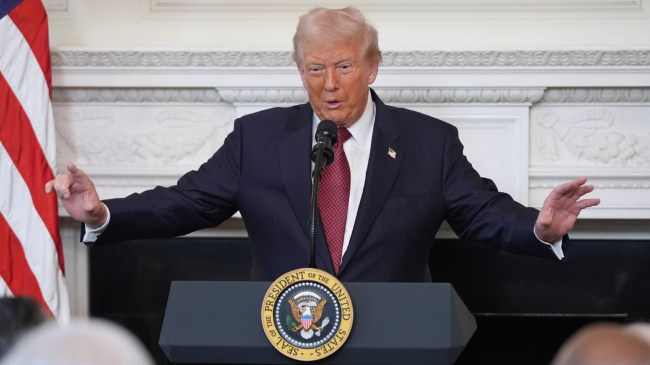Opinion Trump looms over COP, even after pulling US out of Paris Pact
The next UNFCCC COP will be held in Belem, Brazil, from November 10 to 25. Times couldn’t be tougher for the negotiations — even in 1992, when the UNFCCC was adopted in Rio de Janeiro, there was no questioning climate change. The negotiations were about commitments, obligations, and responsibilities. Today, things are different. The US […]
 US President Donald Trump. (Photo: AP/File)
US President Donald Trump. (Photo: AP/File) The next UNFCCC COP will be held in Belem, Brazil, from November 10 to 25. Times couldn’t be tougher for the negotiations — even in 1992, when the UNFCCC was adopted in Rio de Janeiro, there was no questioning climate change. The negotiations were about commitments, obligations, and responsibilities. Today, things are different.
The US has been a long-time naysayer at the UNFCCC, but now, for a second time, it has withdrawn from the Paris Agreement of 2015. At the UNGA, President Donald Trump called climate change “the greatest con job ever perpetrated on the world”. He is pushing fossil fuels — a bonanza of now limited time given technological advances in alternative fuels. His administration, playing disruptor at Belem, shouldn’t, therefore, be taken lightly — they are still in UNFCCC, and recently at an IMO conference used every tactic, including browbeating smaller countries to avoid setting net-zero targets.
To make matters worse, the Europeans, who project themselves as climate champions, are now pulling back on their own climate ambitions. Some people also feel the negotiations are becoming a “tamasha” as was witnessed at the Dubai COP in 2023, with a huge expo and too much space for fossil-fuel producers.
Others, like Bill Gates, think that global warming shouldn’t be the highest of global priorities, and instead, the focus should be on health and prosperity. The World Bank has also shifted focus from sustainability to employment, despite a push by many countries to raise its funding for climate change to $1 trillion. There should be little doubt that these shifts appeal to Trump, but they shouldn’t be overlooked. The UNFCCC had better be aware.
Brazil has rightly chosen to focus on implementation and not new commitments. And it is taking a diplomatic way in choosing to vest the COP presidency in veteran multilateralist Andre do Lago, Brazil’s former ambassador to India.
Climate change is an important issue for BRICS, which adopted a Leaders’ Declaration on Climate Finance at its summit earlier this year in Brazil. With the developed world hesitant, an increase in fund mobilisation does not appear realistic at Belem, though for the Global South, some success is a must, along with ensuring that climate negotiations continue in a multilateral framework. This is bolstered by the advisory opinion of the International Court of Justice, which recognised the global threat of climate change with a legal obligation for countries to mitigate this huge challenge.
The BRICS, as the largest countries in the South, therefore, have not only an obligation but a vested interest in adding their heft to the South’s demands. With the US out and Europe ambivalent, checking the Chinese ambition of global leadership on climate change is an urgent imperative. It needs to reach out to the South.
The Brazilians are also looking at broadening the climate discourse. At the WTO, do Lago floated the idea of a platform, the Integrated Forum on Climate Change and Trade, as Brazil’s flagship initiative at Belem. Brazil’s ideas on working on the climate and trade nexus have been met with a degree of hesitation from the South, which sees them as a vindication of non-tariff barriers and a dilution of the principle of differentiation. On the other hand, the EU certainly and possibly even the Chinese are positively inclined. Given the Brazilian push and the key imperative for success at Belem, and to keep multilateral negotiations on climate change going, it would appear useful for the BRICS to join these conversations while negotiating for guardrails to safeguard their development imperatives. For India, collaborative global action on climate change is also key to the pursuit of its twin goals — Viksit Bharat by 2047 and net zero by 2070. India also has an interest in the multilateral negotiations, having shown an interest in hosting the COP in 2028.
The writer, a distinguished fellow at TERI, is former Indian ambassador to the EU & former lead negotiator for India at UNFCCC






